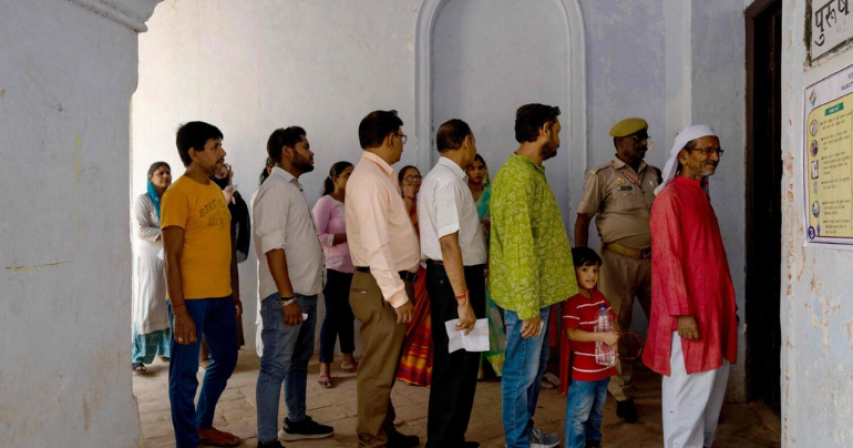Ineligible 17-year-old voted eight times for Modi: police

In a startling revelation, an ineligible 17-year-old was detained by Indian police for casting eight votes for Prime Minister Narendra Modi's ruling party in the ongoing national polls. The Election Commission of India took action, suspending poll officials and ordering a fresh vote at the polling station where the incident occurred. The minor's video, showing him excitedly voting for the Hindu nationalist Bharatiya Janata Party (BJP), went viral, prompting widespread outrage and accusations of voter fraud.
"This is the second vote," the boy gleefully announces in the video, captured while he presses the electronic voting machine button for a BJP candidate in Uttar Pradesh, India's most populous state and a political bellwether. He continues to boast about casting multiple votes, even making finger-count gestures after each press, eventually admitting to voting eight times.
The minimum voting age in India is 18 years, making the minor's actions illegal and raising serious concerns about the integrity of the electoral process. Deputy police superintendent Dhananjay Singh Kushwaha confirmed the detainment of the juvenile, who confessed to voting eight times and filming the video.
The incident, which took place in Farrukhabad, Uttar Pradesh, led to the suspension of all polling officials at the polling station, who will now face disciplinary action. Uttar Pradesh, with its massive population of over 250 million people, holds significant political importance in India, with its 80 MPs crucial for any party seeking national power.
While Prime Minister Modi is widely expected to win the polls, his political rivals seized upon this incident to allege favoritism towards the ruling party by Indian election authorities and lax enforcement of rules. Opposition leader Rahul Gandhi accused the BJP of attempting to subvert democracy and called on poll officials to uphold their constitutional duty.
This incident underscores the challenges faced by India's electoral system and the need for robust mechanisms to ensure the fairness and transparency of elections. As the nation grapples with the aftermath of this shocking revelation, questions arise about the efficacy of electoral regulations and the accountability of poll officials in upholding the sanctity of the democratic process.
By: Sahiba Suri





Comments